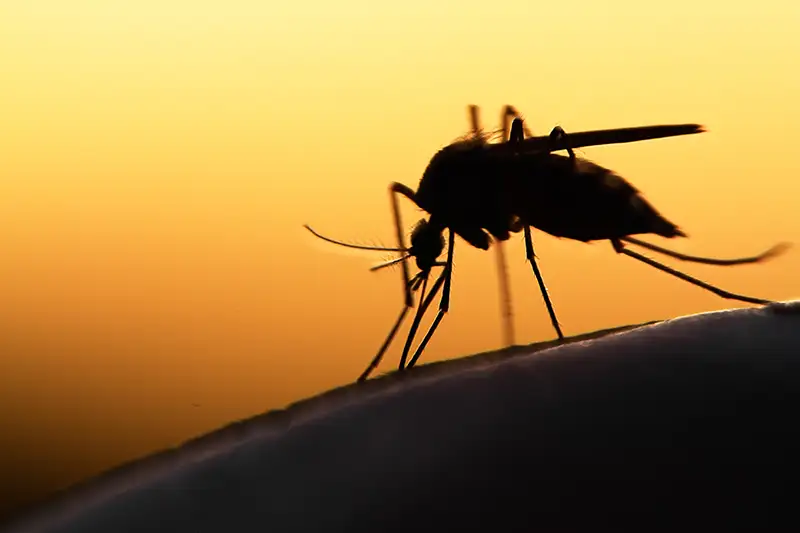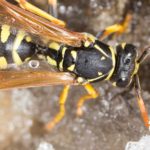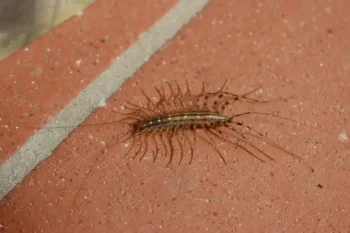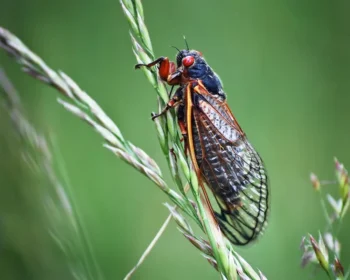
The Eastern Equine Encephalitis (EEE) Virus in Long Island
Recent testing in Connecticut and Rhode Island has brought to light the unwelcome presence of the Eastern Equine Encephalitis (EEE) virus from local mosquitoes. It’s a rare but serious disease that Long Island residents need to be aware of, with a mortality rate of about 30% and long-lasting neurological effects among survivors.
Infections involving horses and wildlife across the Northeast and as far as Wisconsin are alarming experts. Neighboring states are already responding with pesticide sprays in critical areas.
The black-tailed mosquito (Culiseta melanura) is the main culprit in spreading EEE.
Traditionally, mitigating mosquito-borne threats involves community-wide pesticide sprays, personal repellents, and education on prevention methods. However, these solutions can only go so far and sometimes come with their inconveniences and inefficiencies.
We at Arrow Exterminating specialize in mosquito control services that focus on preventing disease-carrying mosquitoes. By combining local expertise with professional, environmentally sensitive treatment plans, we offer prevention against disease-carrying mosquitoes to those in Long Island.
Recent Eastern Equine Encephalitis (EEE) Cases
This year, five reported EEE cases within the US, predominantly in the Northeast, have already been reported. The Centers for Disease Control and Prevention (CDC) reported seven cases in 2023 nationally. Most recently, a New Hampshire resident lost his life from contracting the virus.
With more individuals affected this year, it’s clear the threat posed by EEE remains high, emphasizing the crucial need for effective mosquito control strategies.
Eastern Equine Encephalitis (EEE) Symptoms
Look out for these symptoms of EEE – and seek medical attention right away if you experience them:
- High fever
- Headache
- Seizures
- Drowsiness
- Diarrhea
- Vomiting
What Causes Eastern Equine Encephalitis (EEE)?
Primarily, the EEE virus is transmitted to humans through the bite of an infected mosquito that has previously fed on an infected bird. The virus is typically maintained in a bird-mosquito cycle, predominantly in swampy or woodland habitats.
How Can I Prevent EEE?
Since there’s currently no human vaccine available for EEE, the best defense is proactivity and professional mosquito control.
- Wear long sleeves, tuck pants into socks, and shirts into pants for an added layer of protection when outside during dusk or dawn (mosquito prime time).
- Opt for insect repellents with DEET and adhere strictly to the label instructions. For children, apply with care, avoiding direct hand contact.
- Make sure window and door screens are intact to block unwanted pests.
- Remove standing water where mosquitoes thrive.
- Bring in mosquito control experts to put a prevention plan in place.
This is where we come in. As professional pest control specialists, Arrow Exterminating provides long-lasting mosquito prevention to bring peace of mind to our Long Island community.
Your Experts in Mosquito Treatment
We understand the distress that concerns about viruses like EEE bring to our community. So why rely on just any pest control service when you can have experts in mosquito management right here in Long Island?
Using an integrated pest management approach, we focus on long-term prevention through habitat modification, biological control agents, and minimal use of chemical products. This strategic approach ensures that our mosquito control measures are sustainable, effective, and environmentally friendly.
Reach out to us today to get started with a free service quote!







